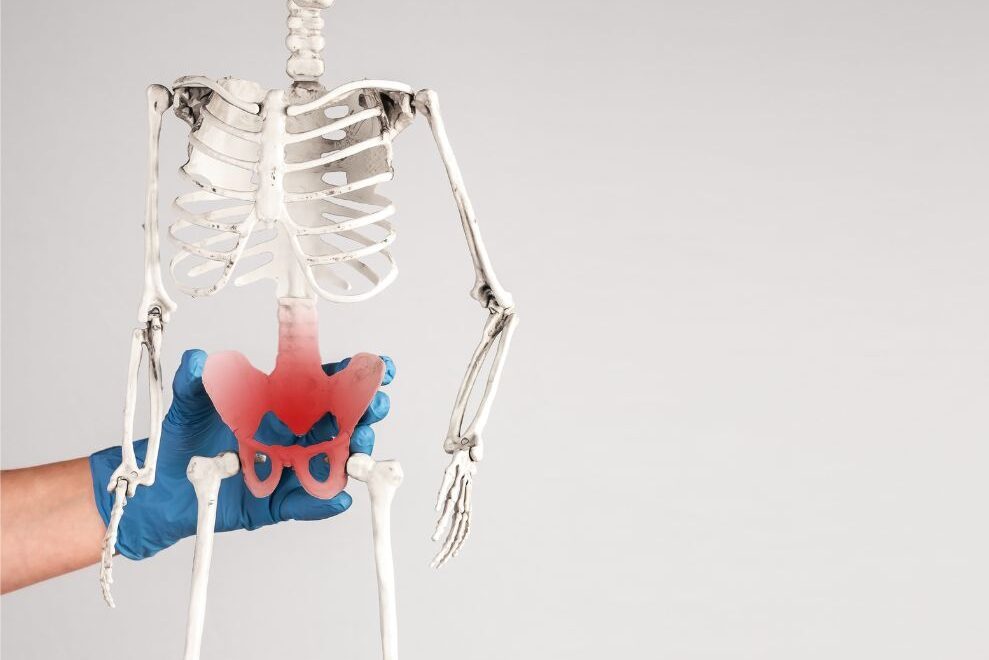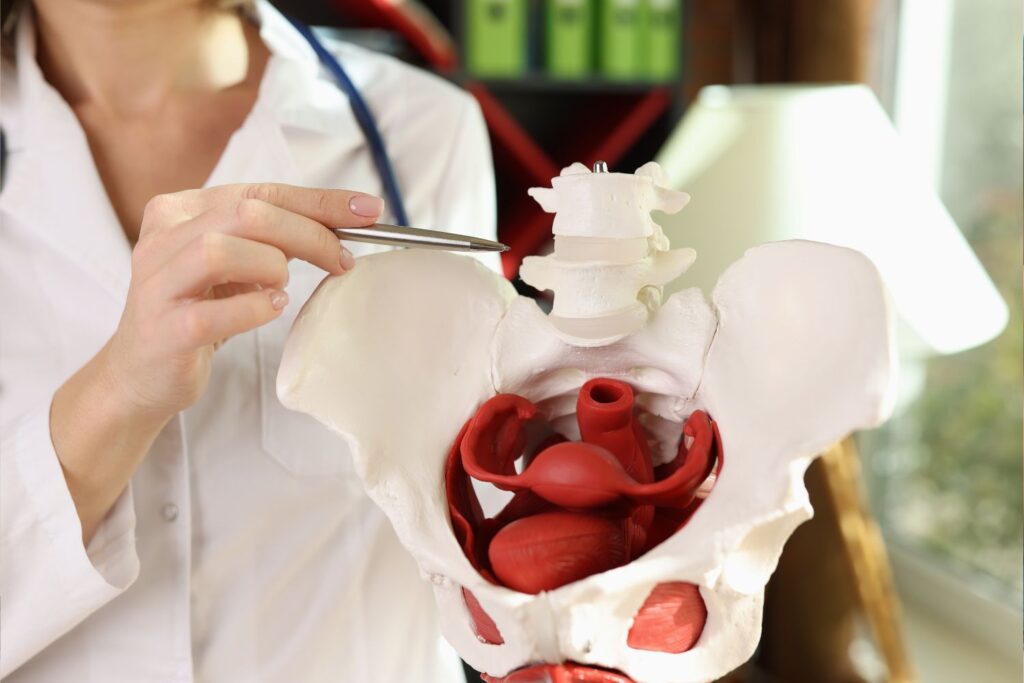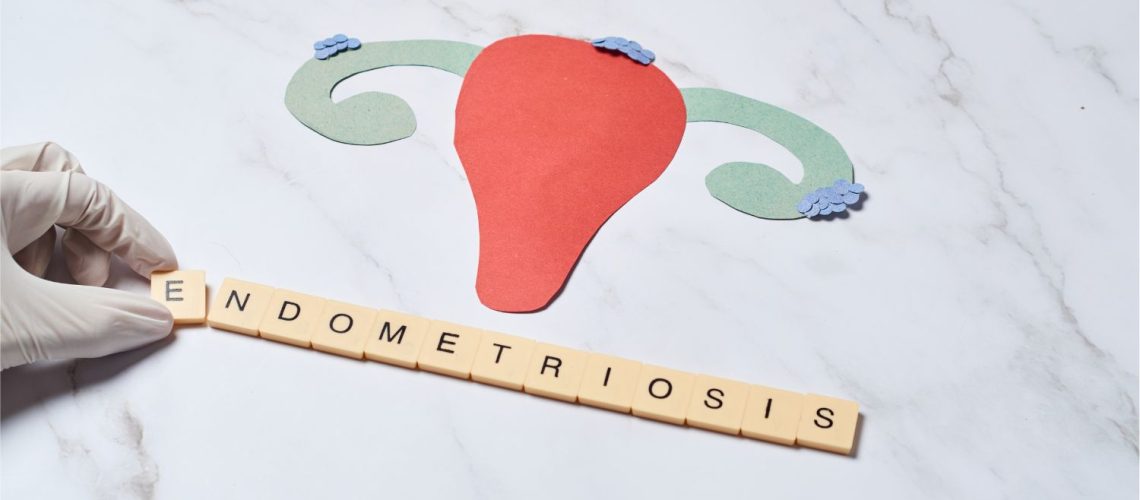Endometriosis (commonly also known as ‘endo’) is a chronic condition that affects millions of women worldwide. Despite its prevalence, it remains widely misunderstood, often leading to delayed diagnosis and inadequate treatment. In this article, we’ll delve into what endometriosis is, its symptoms, how it’s diagnosed, and available management and treatment options.
So, what is endometriosis?
Endometriosis occurs when tissue similar to the lining of the uterus, called the endometrium, grows outside the uterus. This tissue can be found on the ovaries, fallopian tubes, outer surface of the uterus, and other organs within the pelvic region.
This tissue behaves like the normal endometrium during menstruation, shedding and bleeding. However, since it has no way to exit the body, it becomes trapped, leading to inflammation, pain, and the formation of scar tissue or adhesions.

Symptoms of endometriosis
Endometriosis manifests differently in each individual, with some experiencing severe symptoms while others may have minimal discomfort. It takes an average of 6.5 years to be diagnosed with endometriosis, but symptoms can occur as early as eight years of age. Common symptoms include:
- Chronic Pelvic Pain: This pain may occur before and during menstruation, during intercourse, bowel movements or urination.
- Heavy Menstrual Bleeding: Women will often experience heavy periods or irregular bleeding.
- Painful Intercourse: Pain during or after intercourse (known as dyspareunia).
- Gastrointestinal Issues: Such as diarrhea, constipation, bloating, or nausea, particularly during menstruation.
- Infertility: Endometriosis can lead to fertility issues in some women due to the formation of scar tissue and adhesions that may obstruct the fallopian tubes or affect the ovaries.
Diagnosis
Diagnosis can be challenging due to the variability of symptoms and the lack of definitive diagnostic tests. However, healthcare providers typically rely on a combination of medical history, physical examination, and imaging tests such as ultrasound or MRI.
The gold standard for diagnosis is laparoscopy, a surgical procedure in which a camera is inserted through a small incision in the abdomen to visualise and biopsy endometrial tissue.

Treatment strategies
Managing endometriosis requires a multifaceted approach aimed at relieving symptoms and improving overall well-being, such as pain management, hormonal therapies, complementary therapies, or, in extreme cases, surgical intervention. So, what does this look like?
Medical Treatment
- Pain Management: Over-the-counter pain relief and anti-inflammatory drugs to alleviate pelvic discomfort and menstrual cramps.
- Hormonal Therapies: Birth control pills, hormonal patches, or progestin-only treatments can regulate hormonal fluctuations and reduce the growth of endometrial tissue.
Surgical Treatment
- Laparoscopic surgery is recommended for severe cases to remove endometrial implants, scar tissue, or adhesions, providing relief and improving fertility prospects.
Allied Therapies
- Integrative approaches such as physiotherapy, osteopathy, psychology and dietary changes complement conventional treatments, offering additional relief and support.

Our clinics offer complementary therapies such as osteopathy, physiotherapy, dietetics, myotherapy and remedial massage therapy to support women with endometriosis. These therapies can help alleviate pelvic pain, improve mobility, address pelvic floor dysfunction, provide personalised nutrition advice, and relieve muscle tension and stress.
If you suspect you may have endometriosis or are experiencing symptoms; it’s crucial to consult with a healthcare provider who can provide personalised care and guidance tailored to your needs. Remember, you are not alone, and help is available.
Additional Resources
- Endometriosis Australia is a nationally accredited charity that raises awareness, educates and funds research for endometriosis: https://endometriosisaustralia.org/
- This special podcast is all about educating and creating awareness for endo: https://endometriosisaustralia.org/podcast/
- EndoZon, an evidence-based website co-created with people affected by endo: https://www.endozone.com.au/
- QENDO provides support, education and awareness for anyone affected by endometriosis, adenomyosis, PCOS or infertility across Australia and New Zealand: https://www.qendo.org.au/

